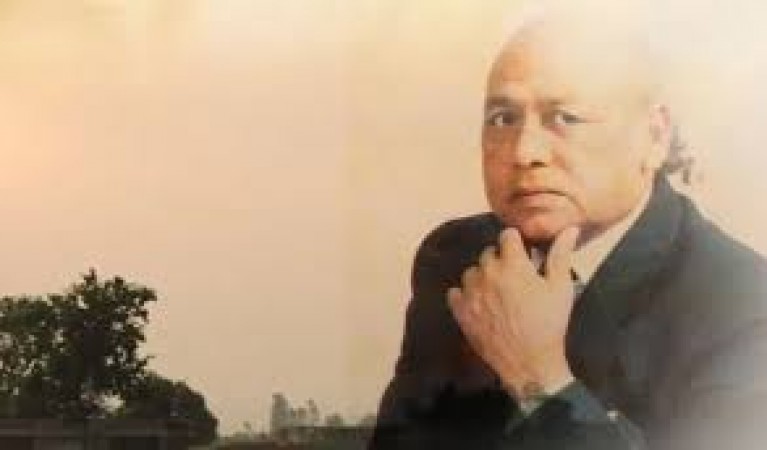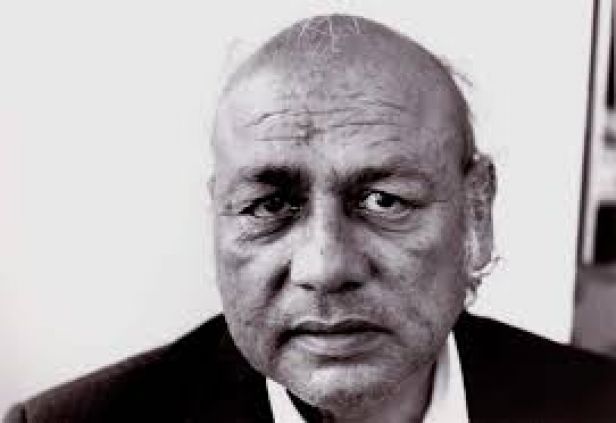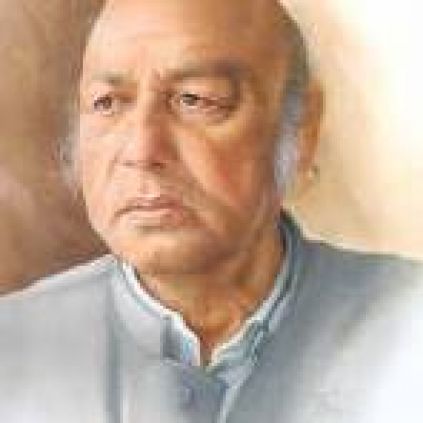
Habib Jalib, one of Pakistan's most celebrated poets, is often revered for his revolutionary spirit, piercing social critique, and unwavering commitment to justice. Born as Habib Ahmad on March 24, 1928, in a village near Hoshiarpur, Punjab (now in India), Jalib's journey from a humble background to becoming the voice of the oppressed masses is nothing short of inspirational.

Jalib's poetic journey began in his youth, where he was deeply influenced by the struggles of the common people and the injustices prevailing in society. His poetry, characterized by its simplicity, depth, and fierce critique of tyranny, resonated deeply with the masses, making him a beacon of hope and resistance.
One of Jalib's most defining features was his fearlessness. He fearlessly spoke truth to power, challenging the status quo and confronting oppression head-on. His poetry was not merely a means of artistic expression but a powerful tool for social change. He fearlessly criticized the ruling elite, exposing their hypocrisy, corruption, and exploitation of the masses. Throughout his life, Jalib remained a staunch advocate for the downtrodden, lending his voice to various social and political movements. He actively participated in protests, rallies, and demonstrations, using his poetry to galvanize support and mobilize the masses against injustice.
Jalib's poetry was deeply rooted in the struggles of the working class, peasants, and marginalized communities. He highlighted their plight, giving voice to their pain, suffering, and aspirations. His verses resonated with the common people, offering them solace, inspiration, and a sense of empowerment. Despite facing persecution and censorship from the authorities, Jalib remained undeterred in his commitment to speaking truth to power. He spent several years of his life behind bars for his outspoken views and activism. However, even in the face of adversity, he continued to write and speak out against oppression, tyranny, and injustice. Jalib's poetry encompassed a wide range of themes, including love, revolution, freedom, and human dignity. His verses were infused with passion, emotion, and a deep sense of empathy for the suffering of others. He had a unique ability to capture the essence of the human experience and convey it in simple yet profound language.

One of Jalib's most famous works is his poem "Dastoor" (The System), which remains as relevant today as it was when it was first written. In this poem, Jalib passionately critiques the oppressive nature of the societal system and calls for a revolution to overthrow it. His words continue to inspire generations of activists and revolutionaries fighting against injustice and inequality. Jalib's legacy extends far beyond his poetry. He was not just a poet but a symbol of resistance, courage, and integrity. His life and work continue to inspire people around the world to stand up for what is right and fight against oppression in all its forms. Habib Jalib was more than just a poet; he was a revolutionary force for change. His poetry transcended mere words, serving as a powerful catalyst for social and political transformation. His unwavering commitment to justice, coupled with his fearless defiance of tyranny, makes him a towering figure in the history of literature and activism. Even today, his message resonates as strongly as ever, reminding us of the enduring power of poetry to challenge injustice and inspire hope.
1. Dastoor This poem criticizes the socio-political system and advocates for change. One of its famous lines is:
"Main naheen maanta, main naheen jaanta, Jo sach hai, woh sach hai, magar main kehta hoon jo sach hai.
(Translation: I do not accept, I do not acknowledge, What is true, is true, but I say what is true.)
2. Musheer In this poem, Jalib addresses the hypocrisy of politicians and their empty promises. A notable line from this poem is:
"Unka jo kaam hai, wohi sahi, Hum karen toh raasleela hai."
(Translation: Whatever they do is right, When we do it, it's mischief.)
3. Zulmat Ko Zia This poem is a critique of oppressive regimes and advocates for freedom and justice. A famous couplet from this poem is:
"Yeh dagh dagh ujala, yeh shab gazida sahar, Woh intizar tha jiska, yeh woh sahar toh nahi."
(Translation: This tainted dawn, this night-bitten morning, This is not the morning we awaited.) 4. Harf-e-Sar-e-Zindagi This poem reflects on the struggles of life and the resilience of the human spirit. A memorable verse from this poem is: "Har aik baat pe kehtay ho tum ke tu kya hai, Tum hee kaho ke yeh andaaz-e-guftagu kya hai." (Translation: Every time you ask me what I am, Tell me, what is this way of conversation?)
Julia Garner Takes on Silver Surfer Role in Marvel's 'Fantastic Four'
Enjoy the power of immersive entertainment with Airtel Xstream Fiber